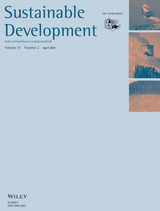
How does policy coherence shape effectiveness and inequality? Implications for sustainable development and the 2030 Agenda
Browne, Katherine / Adis Dzebo / Gabriela Iacobuţă / Alexia Faus Onbargi / Zoha Shawoo / Ines Dombrowsky / Mathias Fridahl / Sara Gottenhuber / Åsa PerssonExternal Publications (2023)
in: Sustainable Development 31 (5), 3161-3174
DOI: https://doi.org/10.1002/sd.2598
Open access
During the formulation of the 2030 Agenda for Sustainable Development, many promoted policy coherence as a key tool to ensure achievement of the Sustainable Development Goals (SDGs) in a way that “leaves no one behind.” Their argument assumed that coherent policymaking contributes to more effective policies and supports over-arching efforts to reduce inequality. As the 2030 Agenda reaches the halfway point, however, countries are falling short on many SDGs, particularly SDG 10 (reduce inequality). This study revisits the basic assumptions about policy coherence underpinning the SDGs. We systematically screened the peer-reviewed literature to identify 40 studies that provide evidence about whether coherent policymaking contributes to more effective outcomes and helps to reduce inequality. We find that coherent policymaking did not help reduce inequality in a majority of cases and made it worse in several. Our findings challenge the narrative that coherence is a necessary pre-condition for progress on the SDGs for all people.



